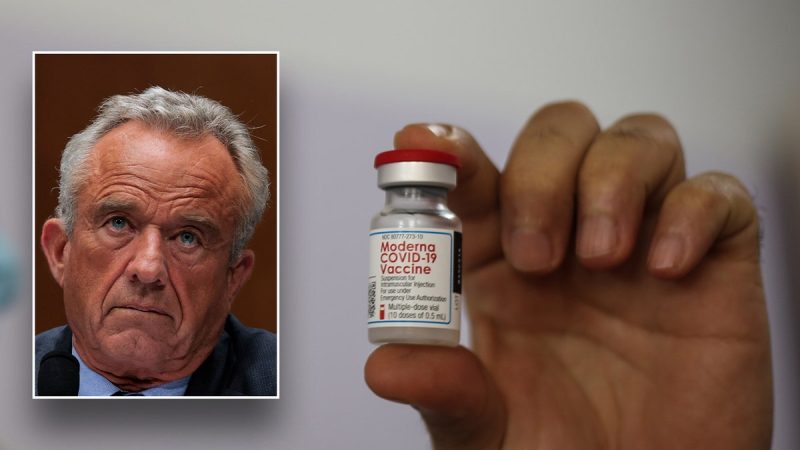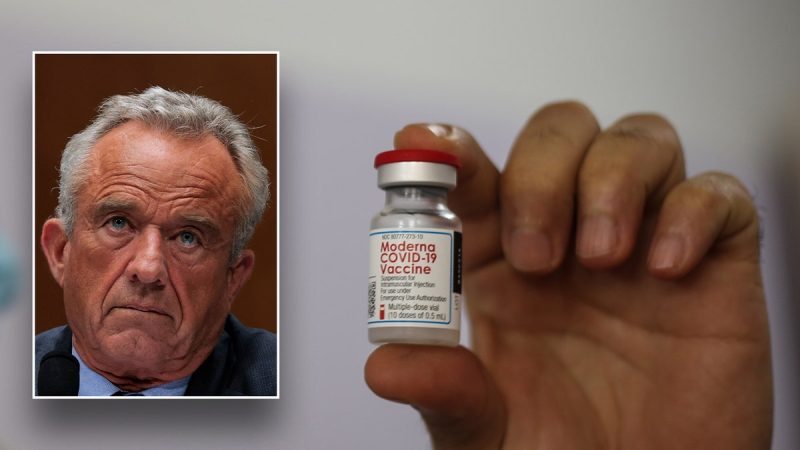
RFK Jr cancels $500 million in mRNA research, HHS to prioritize ‘safer’ vaccine alternatives

A total of 22 mRNA vaccine development contracts totaling roughly $500 million have been canceled, the Department of Health and Human Services (HHS) announced Tuesday.
The mRNA investments were part of the government’s Biomedical Advanced Research and Development Authority (BARDA), a division of HHS that drives some of the country’s most advanced scientific research, such as the development of vaccines, drugs and other tools to fight national health threats. The termination of the 22 BARDA contracts follows a several-weeks-long internal review to determine a path forward when it comes to these investments.
‘We reviewed the science, listened to the experts, and acted,’ HHS Secretary Robert F. Kennedy Jr. said Tuesday. ‘BARDA is terminating 22 mRNA vaccine development investments because the data show these vaccines fail to protect effectively against upper respiratory infections like COVID and flu. We’re shifting that funding toward safer, broader vaccine platforms that remain effective even as viruses mutate.’
In a short video explaining the move, Kennedy said the benefits simply do not outweigh the risks associated with mRNA vaccines.
Kennedy went on to point out that not only do mRNA vaccines – as shown during the COVID-19 pandemic – not perform well against viruses that infect the upper respiratory tract, but they also do not defend against mutations of the viruses they are intended to go after.
‘This dynamic drives a phenomena called anogenic shift, meaning that the vaccine paradoxically encourages new mutations and can actually prolong pandemics as the virus constantly mutates to escape the protective effects of the vaccine,’ Kennedy said in the video.
For example, the HHS secretary pointed to the omicron variant of the COVID-19 virus, which infected many millions, including those who had been vaccinated against COVID.
‘A single mutation can make mRNA vaccines ineffective,’ Kebbedy added, noting that the same risks also apply to the flu virus.
The move to cancel the mRNA contracts under BARDA will not entirely cancel all mRNA vaccine research done by the government, a source familiar with the move indicated. In addition to allowing some final-stage contracts to run their course to completion in an effort to preserve prior taxpayer investments, ongoing mRNA research at the National Institutes of Health (NIH) will not be impacted by this latest move.
Meanwhile, in lieu of the terminated mRNA research and investments at BARDA, HHS will focus on ‘safer, broader vaccine strategies,’ Kennedy indicated.
‘To replace the troubled mRNA programs, we’re prioritizing the development of safer, broader vaccine strategies like whole virus vaccines and novel platforms that don’t collapse when viruses mutate,’ Kennedy said in his video explanation about the terminated mRNA investments.
During the video, Kennedy reiterated his support for ‘safe, effective vaccines’ for any American who wants them.
‘That’s why we’re moving beyond the limitations of mRNA for respiratory viruses and investing in better solutions.’
